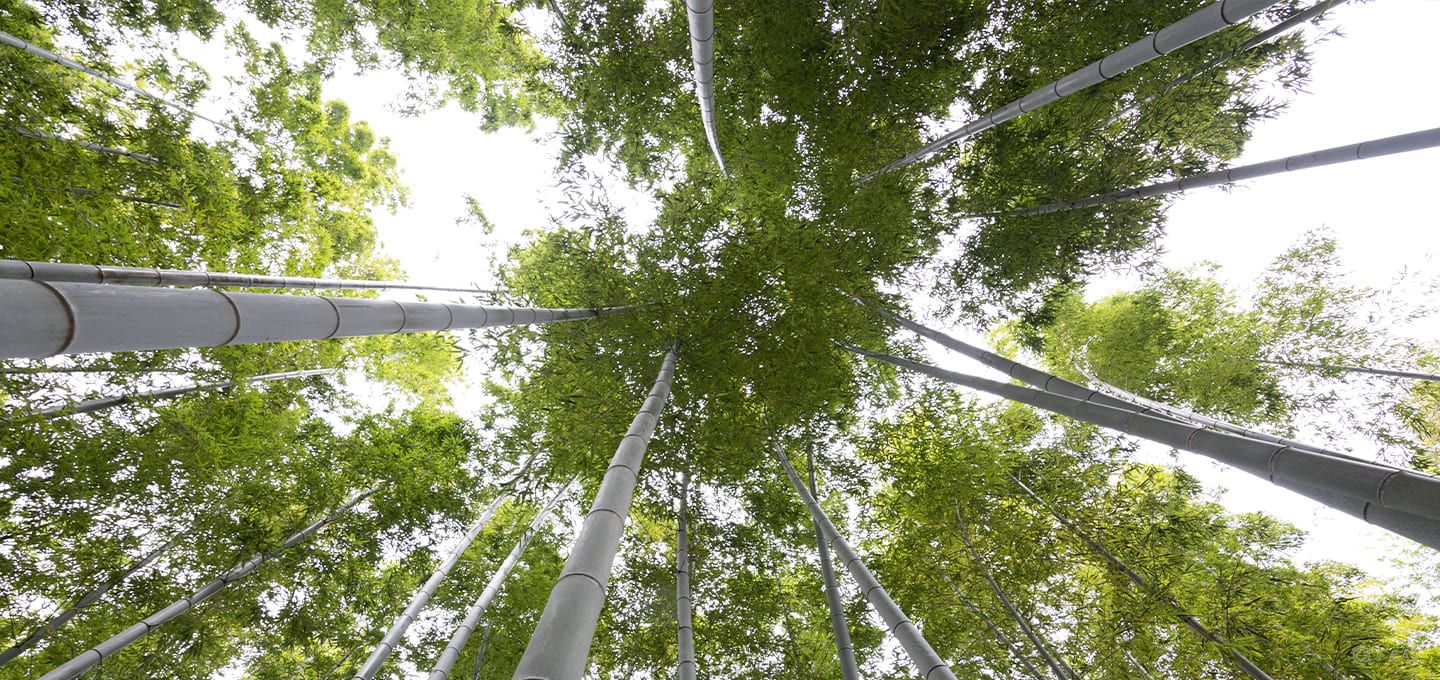
Special Experience
Kyoto
Craft Bamboo Chopsticks in the Kyoto’s Bamboo Heartland
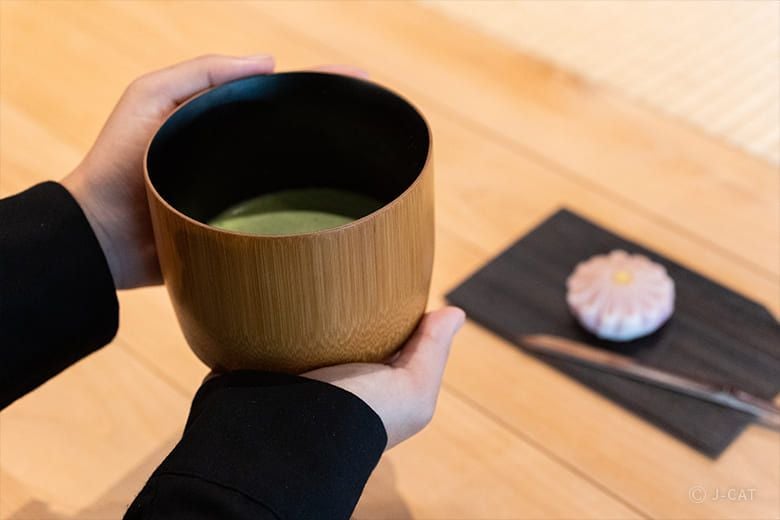
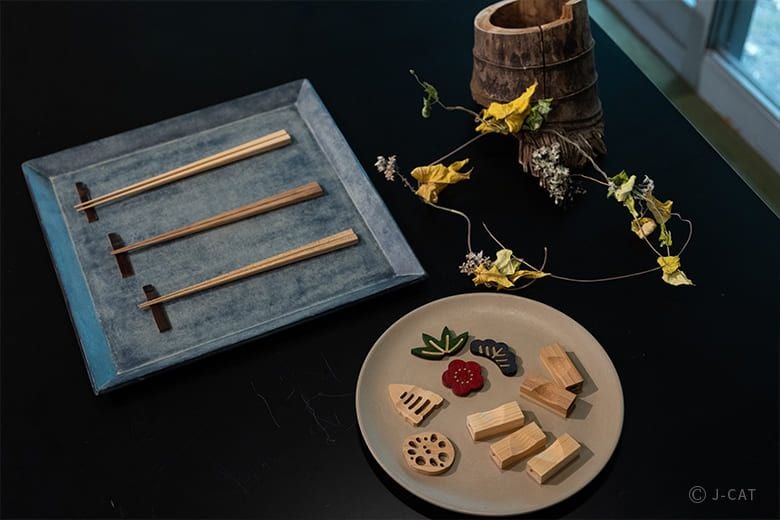
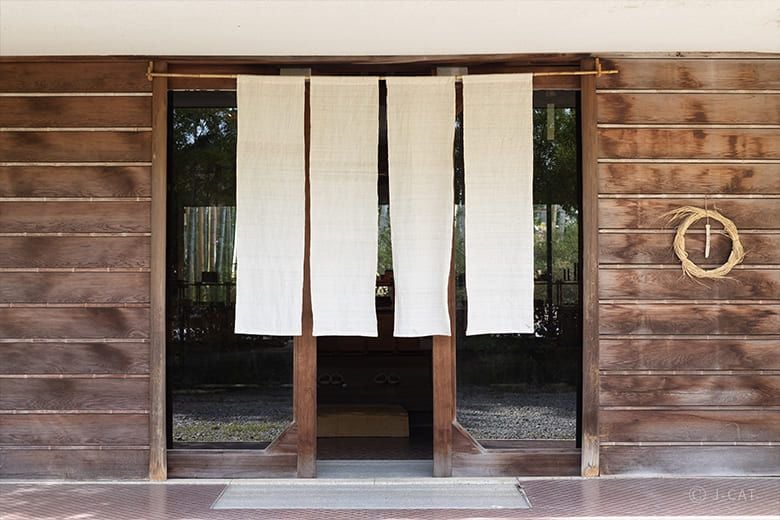
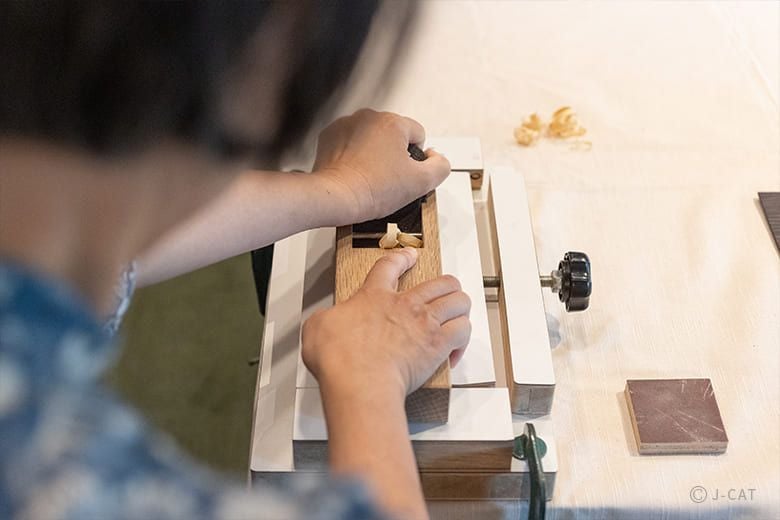
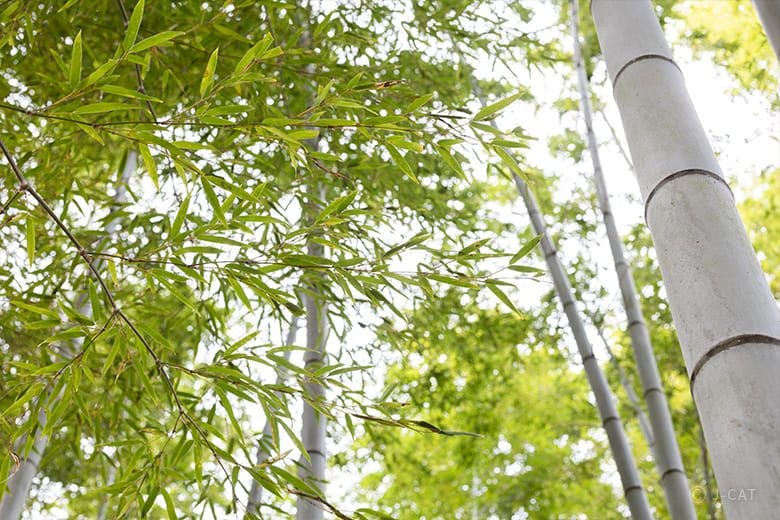
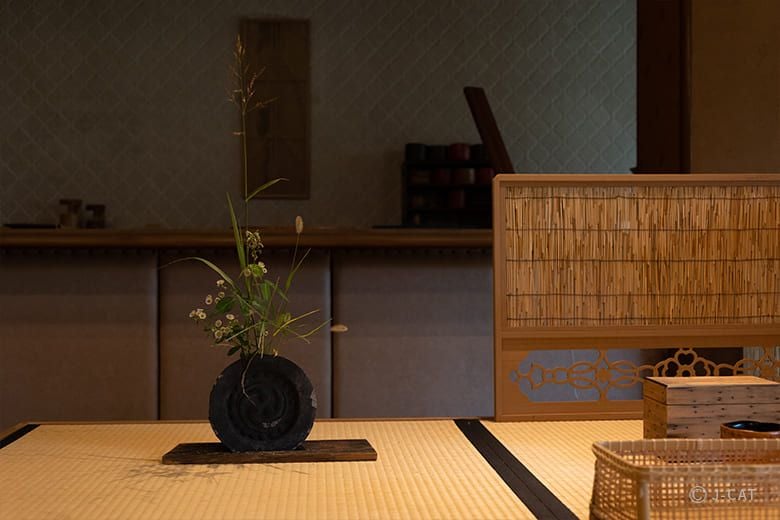
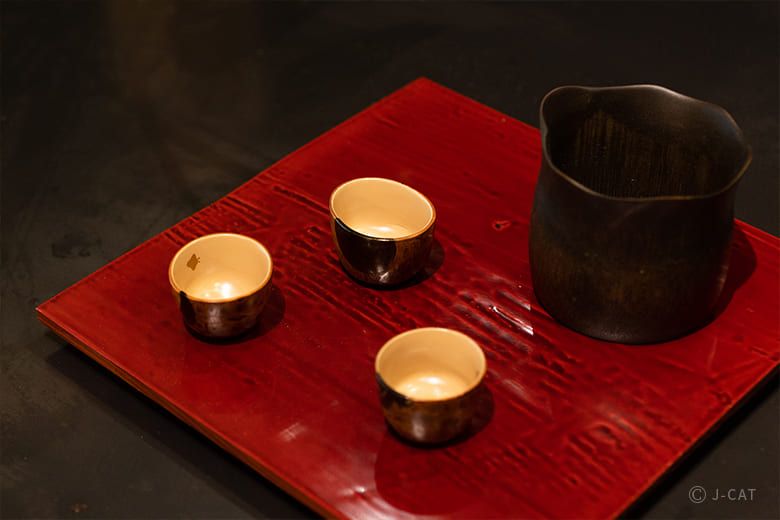
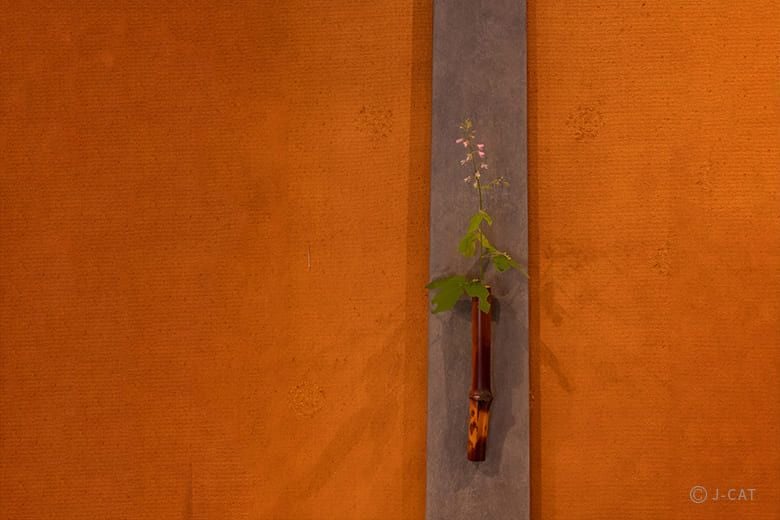
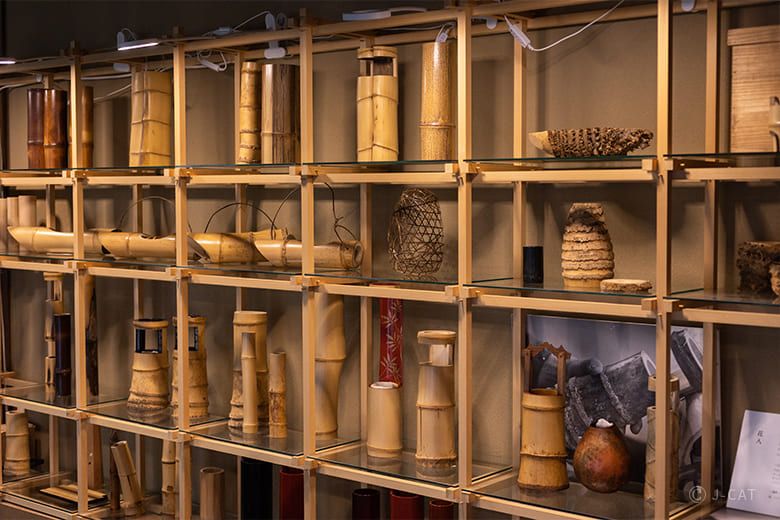
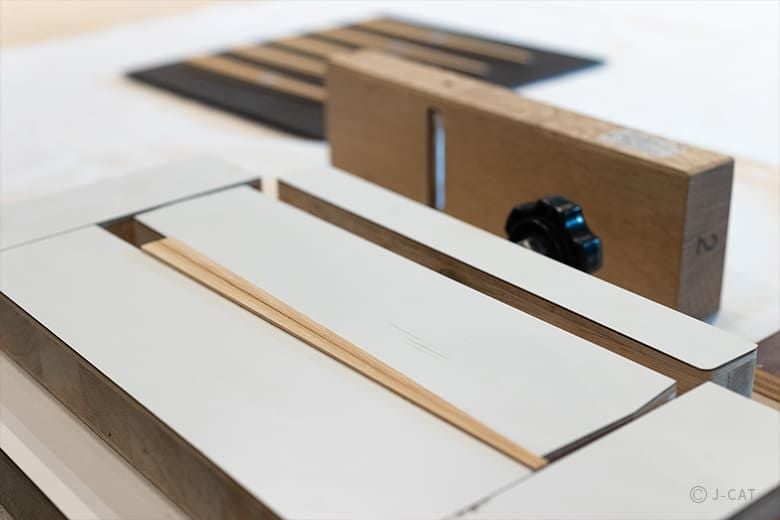
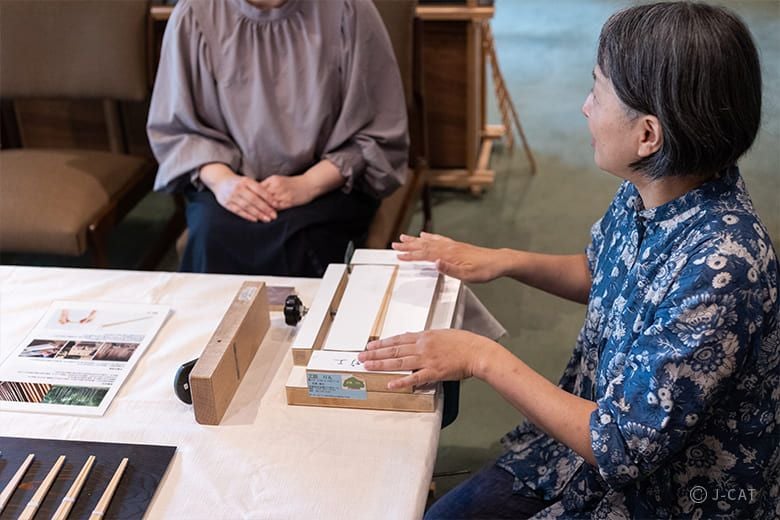
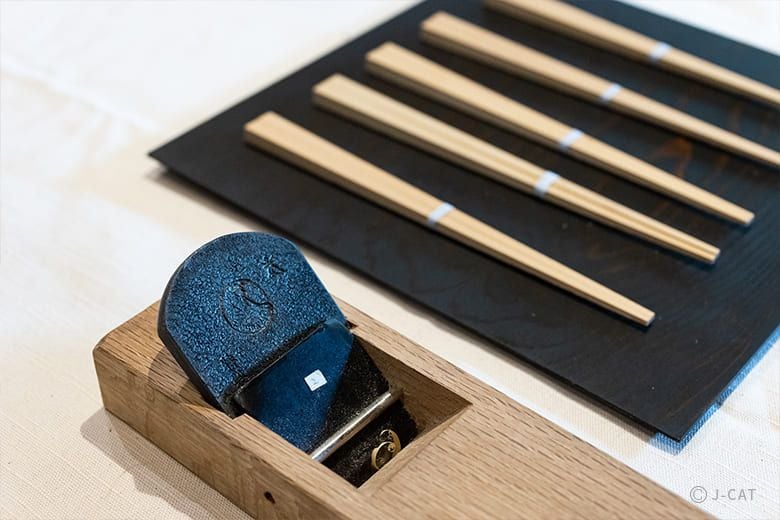
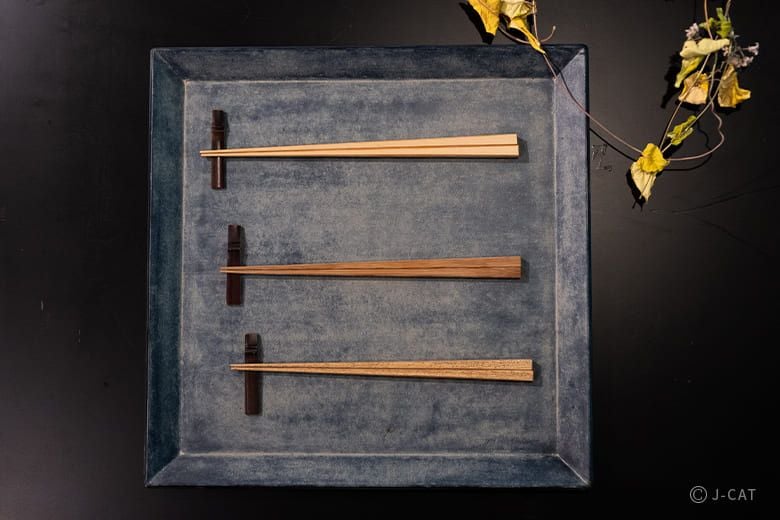
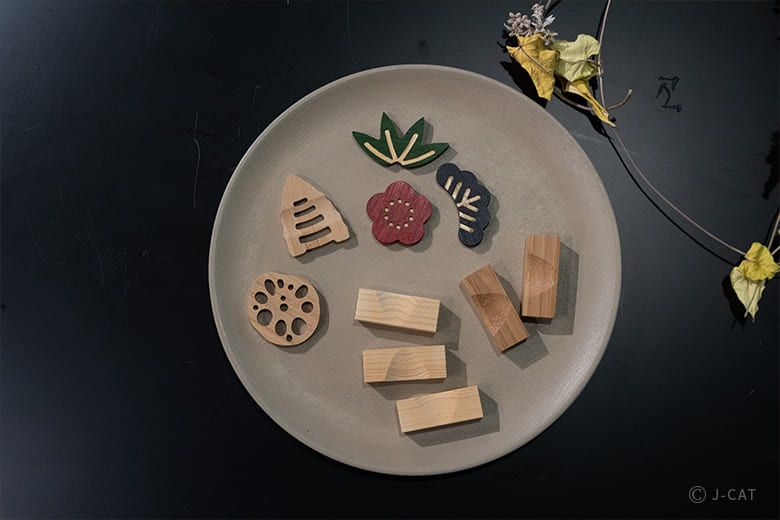
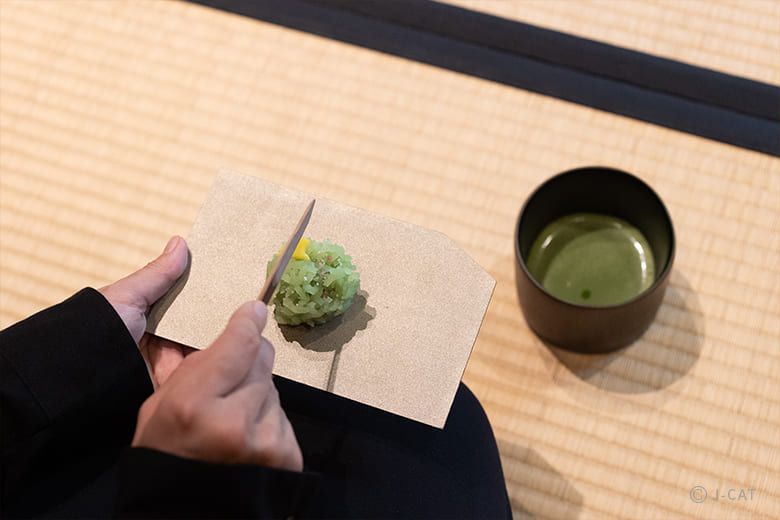
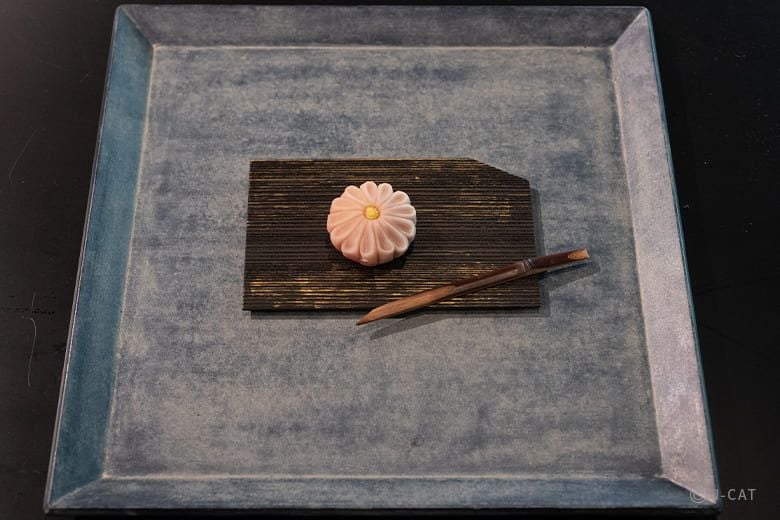
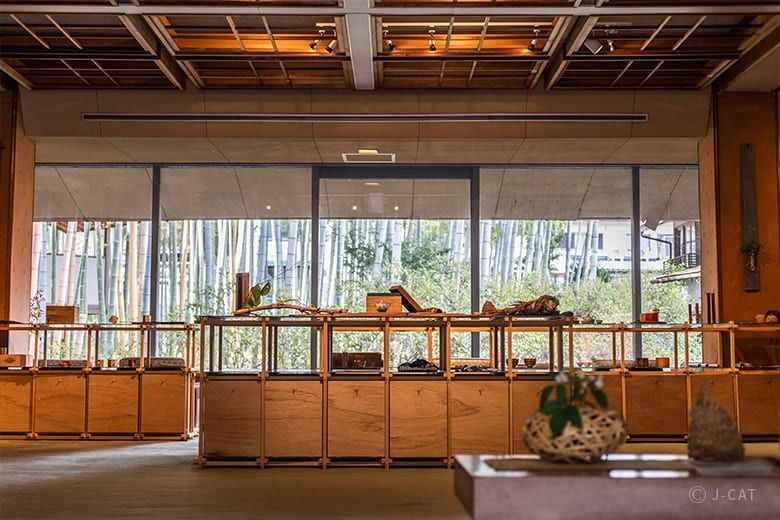
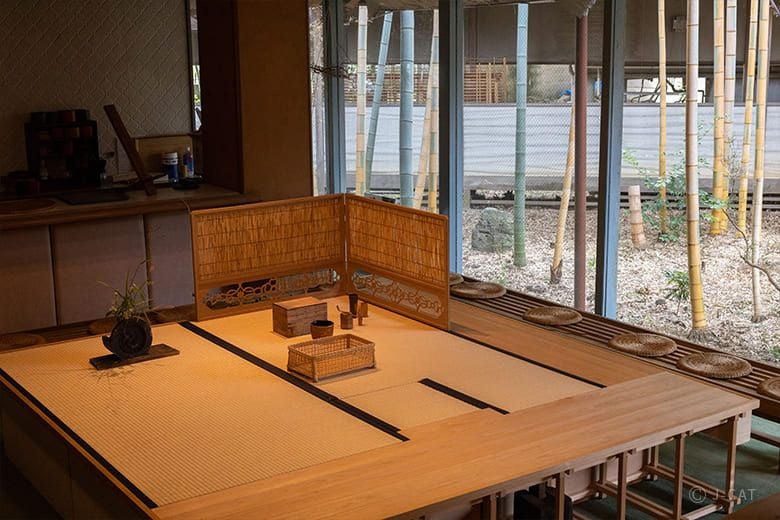
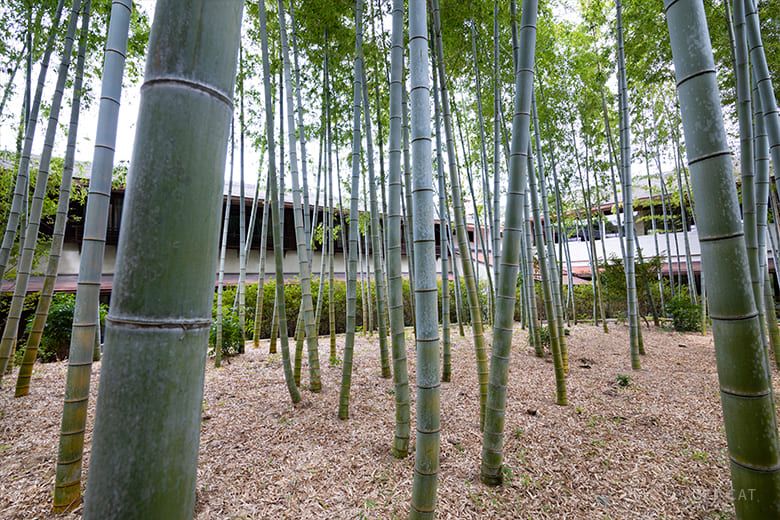
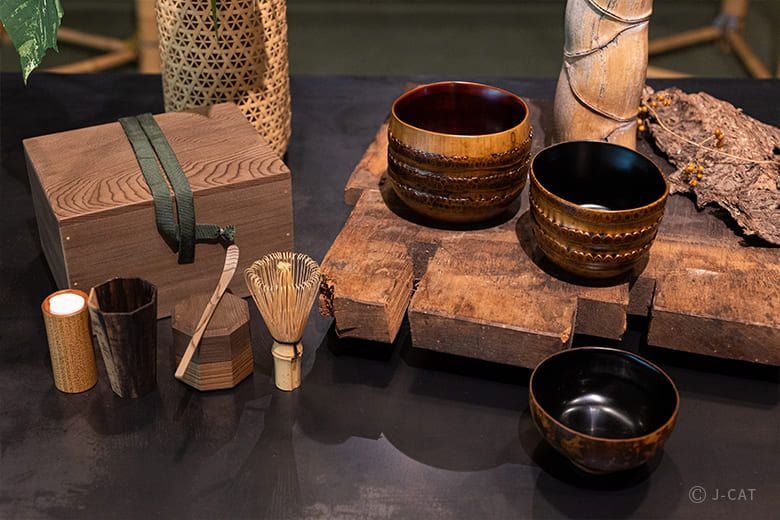
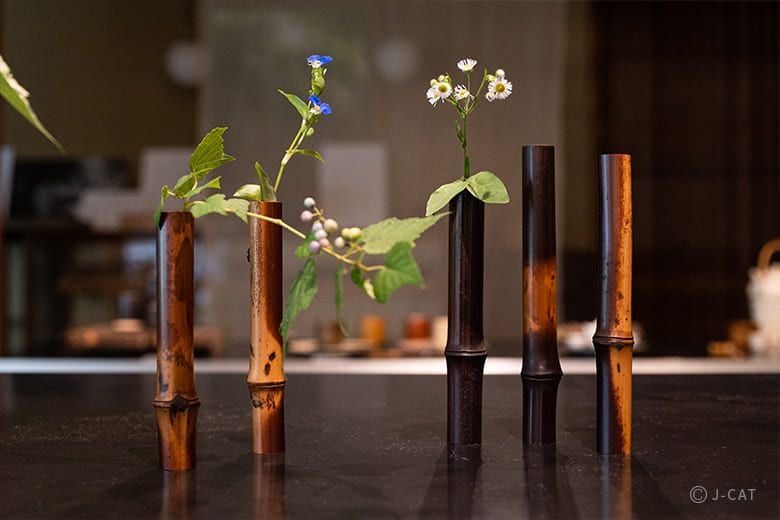
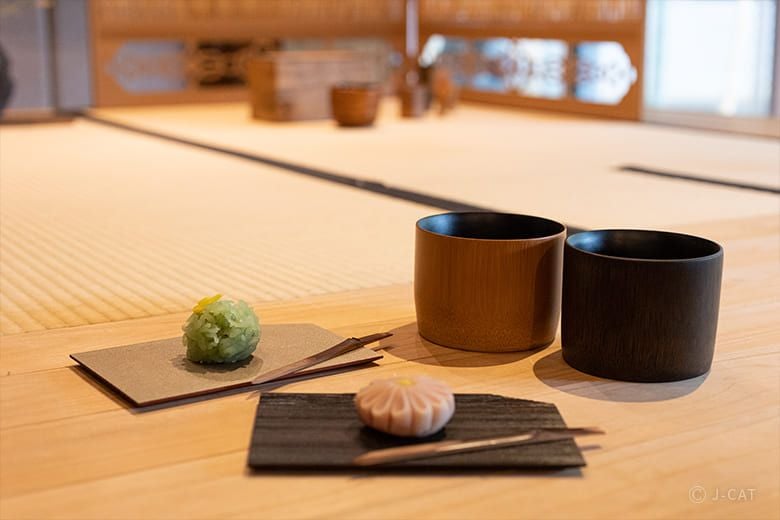
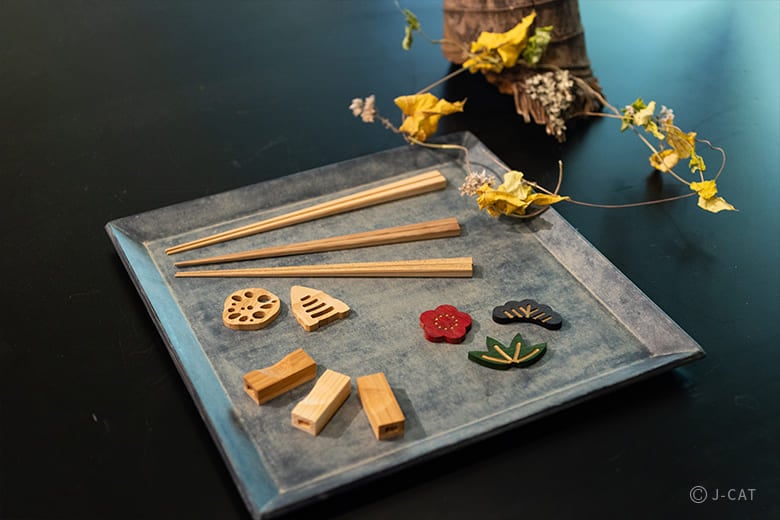























Overview
The Takano Chikko – meaning “bamboo workshop” – is situated in Nagaokakyo City, Kyoto Prefecture’s preeminent region for high-quality bamboo production. Here, tea sets and other household utensils are produced through expert crafting and woodworking from sustainably sourced bamboo and recycled temple construction material.
In this experience, learn the craft by creating a personal set of bamboo chopsticks for yourself at the workshop’s very own Shop & Gallery Chikubuen, while hearing expert commentary on the historical relationship between bamboo and Japanese culture, Kyoto’s varieties of the plant, and the workshop’s efforts toward a more sustainable society. At the end of it all, delight in seasonal Japanese confectionery and matcha tea served in the house’s bamboo dishware.
Key Features
・Craft bamboo chopsticks at Chikubuen, a shop and gallery ensconced in a fairytale bamboo grove, and take them home with you alongside a souvenir chopstick rest.
・Learn all about bamboo, which has seen a huge resurgence in popularity due to its sustainability.
・Delight in traditional Japanese confectionery and matcha tea served in Takano Chikko’s own bamboo artisanal bamboo dishware.
Kyoto
120mins
from ¥36,000 /person
1 - 8 participants
Available in English
Cancel free up to 31 days prior
Details
Shop & Gallery Chikubuen, Herald of Bamboo’s Beauty and Craft Charm
Once known as the Kinsuitei Chikubuen, the gallery sits adjacent to the Nagaoka Tenmangu shrine forest, where it originally served as an inn for travelers to the 1970 Osaka Expo. It was built by the restaurant Kinsuitei – which, apropos of its encircling bamboo grove, specialized in dishes made with bamboo shoots. Meanwhile, Takano Chikko has produced highly original artisanal pieces, tea sets, and daily use utensils that spread joy, and worked to support Kyoto’s bamboo craft industry and traditions.

Takako Chikko’s exclusive shop and gallery sits in a renovated former inn, nestled in a bamboo grove enclosure
Takano Chikko holds domestic and international exhibitions in addition to working with overseas automakers to develop sustainable products. The workshop strives for a recycling-oriented production chain capitalizing on Japan’s forgotten bamboo groves and the building material discarded from renovations of such historical temples Kinkakuji, Ginkakuji, Shokokuji, and Myokian (a.k.a. “Taian”), the last of which has a tea room counted as a national treasure. This focus on repurposed material places importance on life extension of old construction lumber as usable wooden utensils and on passing on one-of-a-kind historical material culture into the hands of new generations.

The gallery’s tea ceremony corner acts as a venue for bamboo craft workshops
Learn about the Bamboo Harvesters Driving a Renewed Exploration of the Possible
Takano Chikko is the intersection of a variety of artisanal professionals, including bamboo harvesters, crafters, joiners, lacquerers, and maki-e lacquer gilding artists. The bamboo harvesters maintain their groves, cut down the stalks, and are vital for securing beautiful, durable bamboo.

A lovely bamboo grove surrounds Chikubuen, extending into its courtyard
Weather permitting, enjoy stepping into the courtyard bamboo garden and surrounding grove to learn about the various kinds of Japanese bamboo and their ecology while looking at the real thing up close. (The same talk will be held indoors in the case of inclement weather.) Bamboo grows naturally in Japan, and has been an essential resource since ancient times. Its flexibility let it be woven into baskets, its hollow shape allowed it to be turned into storage vessels and tableware, and its strength lent itself to building construction. Over the Muromachi period and subsequent Azuchi-Momoyama, together spanning from 1336-1603, its value steadily increased alongside the proliferation of tea ceremony.

Takano Chikko’s artisanal tea paraphernalia
Cultivated bamboo plantations in Japan have been on the steady decline since peaking at 150,000 hectares in the 1970s. Abandoned plantations have become a major concern. Takano Chikko works to maintain local groves, monitor growth, and both curate and harvest high-grade bamboo. It has also been expanding its project to foster a recycling-oriented culture through volunteer bamboo grove maintenance activities and upcycling of wood.
Carving and Planing Chopsticks by Your Hand, for Your Hand
Probably the most famous property of bamboo is its balance between low weight and high strength and flexibility. This allows it to retain its integrity even when cut into very small pieces, making it the perfect material for high-quality, fine-tipped chopsticks, a common application in Japan. In this experience, you will make a set for yourself. Start by choosing the shape and pattern you like from several available bases, and then plane three of the four sides until the thickness reaches ideal comfort in your hand. Finally, smooth-polish the surface, leaving behind just one side with the natural texture of bamboo skin.

Planing each face of the chopsticks with a purpose-built toolset

Chopsticks that fit your hand like they were designed for it – because they were
Luxuriate in Tea Time and Traditional Confectionery Served in Artisanal Tableware
Finish out the experience with matcha tea and traditional Japanese confectionery served in Takano Chikko artisanal bamboo vessels. Sweets are supplied fresh by Kikuharu, a Nagaokakyo local confectioner, but these fresh confections can also be substituted for dried sweets upon request. Savor Kyoto-grown matcha tea in a bamboo cup finished with Takano Chikko’s signature lacquer.

Fresh confections for every season
Japanese artisans have been working to enhance and highlight the natural charms of their materials since time immemorial. Takano Chikko proudly carries on this tradition, working its bamboo with meticulous care and repurposing historical material from the renovation of temples and shrines. Luxuriate in this rustic sophistication alongside the gustatory pleasures of traditional refreshments and matcha tea.
Bamboo’s Unmistakably Unique Texture, a Treat for the Fingertips
Exclusively to Wabunka guests who opt to craft chopsticks, take home your choice of a souvenir bamboo chopstick rest made in animal or vegetable shape.

Chopstick rests in such fetching forms as pine, bamboo, and plum – the festive trinity of Japanese flora in congratulatory motifs. See also the top-left bamboo shoot design, a Takano Chikko original.
Do not hesitate to ask the staff any of your questions while enjoying your matcha tea. Learn about the history of bamboo, its historical role in Japanese culture, and its unique aesthetics. Feeling it in your own hands gives you an unfiltered appreciation for its texture and physicality, and for the natural soothing comfort that this characteristic Japanese material can bring.
Takano Chikko Co., Ltd.

Takano Chikko Co., Ltd.
Founded in 1968 by a devotee of the Sen no Rikyu tea tradition, Takano Bamboo specialized from the start in tea accoutrements. It employs its own artisans doing bamboo cultivation and harvesting, joinery, lacquering, and lacquer gilding, utilizing their skills to produce a wide range of household wares and one-of-a-kind pieces made from antique temple building materials. Takano’s Shop & Gallery Chikubuen opened in 2021 with the goal of sharing and passing on these skills and senses with new generations.
Customer's Voice
The entire experience is very good, from the interpreter to the entire staff from Chibukuen. Everything is very structured and enjoyable. Very friendly service, the added tea ceremony at the end was a delight!
R.K. Singapore
Personable team showed a traditional tea ceremony and historical importance. I had read extensively on the subject prior to my trip, so it was impressive to actually witness a tea ceremony.
B.P. Canada
The whole experience was a special treat. Yoko and Saki were so knowledgeable and the interpreter was so sweet and patient. The moment of the tea ceremony felt especially magical. All the movements were so precise and planned. Almost like a dance, you would not want to interfere by taking pictures, just being in the moment felt right. It is a once in a lifetime experience and more than worth going.
O.H. Germany
Location
Shop & Gallery Chikubuen
Nagaoka Ward, Kyoto
Request for booking
Select first preferred date (JST)
February 2026
Sun
Mon
Tue
Wed
Thu
Fri
Sat
Instant Booking
Request Booking

17
Full

17
Unavailable
- Instant Booking: Your reservation is confirmed immediately upon payment.
- Request Booking: You will receive confirmation after the host reviews your request.
Kyoto
120mins
from ¥36,000 /person
1 - 8 participants
Available in English
Cancel free up to 31 days prior
Things to know
Contact Us
If you have any questions, please contact us using the form below.
We also accept bookings from corporate clients and travel agencies.